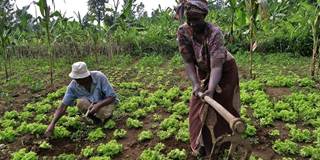Securing Land Rights in Africa
Across the continent, insecure rights to land are robbing millions of financial stability and long-term prosperity. While new technology is giving people the tools to define what’s theirs, governments must recognize that certainty of ownership is a prerequisite of sustainable development.

WASHINGTON, DC – Earlier this month, Liberian President and Nobel Peace Prize laureate Ellen Johnson Sirleaf warned that Africa would continue to be stalked by poverty, hunger, and famine until governments provide smallholder farmers with secure rights to land. She was speaking from experience, both personal and political.